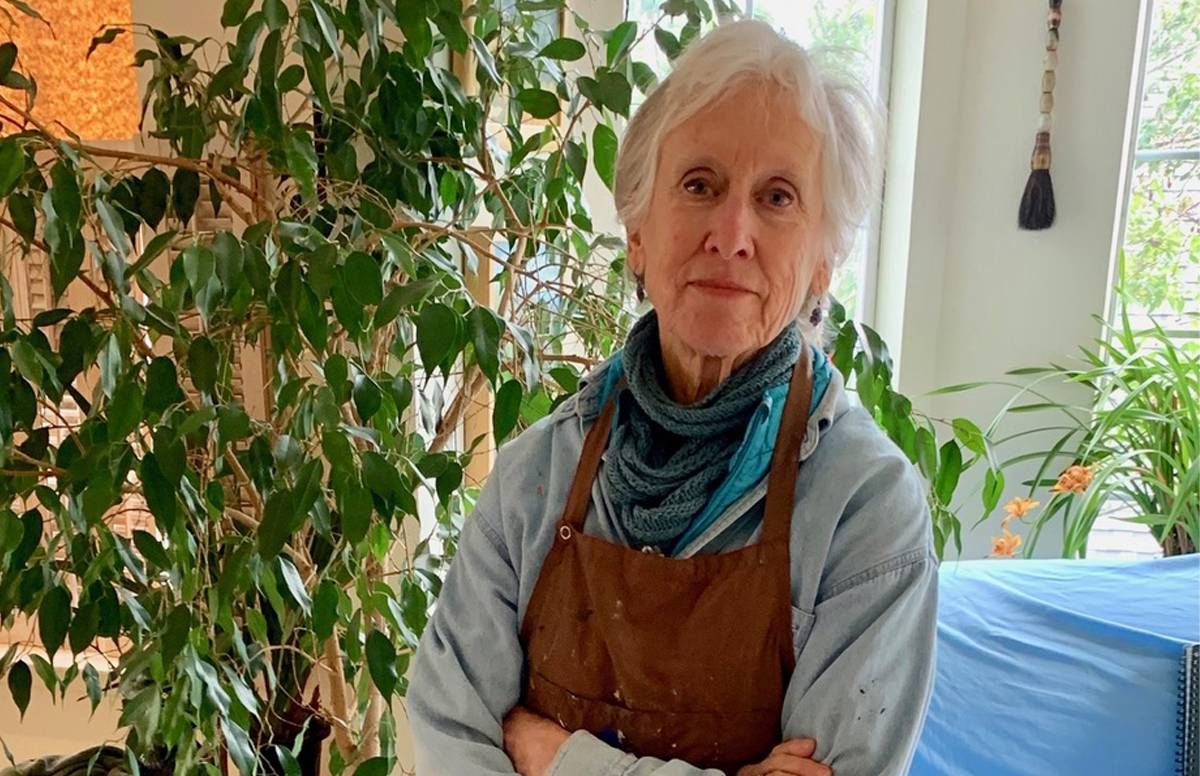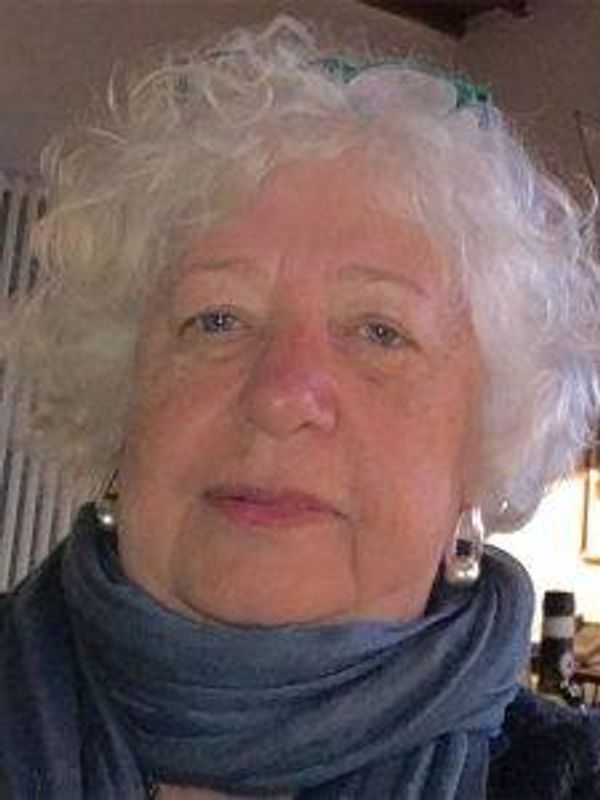New Tools Help Document Care Wishes for Advanced-Stage Dementia
The process adds nuance to quality-of-life considerations
Karen Gallant, 72, of Soquel, Calif., has seen Alzheimer's disease up close. Her sister, Coille Hooven, 80, is in an advanced stage of dementia. This has led Gallant to consider the complexities of what she'd want for herself or her husband, if one of them got the disease.

The advocacy nonprofit Compassion & Choices recently released new tools to help people think about what they would consider quality of life if they had dementia and to share their wishes with family members and health providers. These wishes can be complicated.
"My sister is not unhappy," says Gallant. "She seems to enjoy life, and so I have to keep remembering that, because from my point of view, it's not enjoyable. It's a strain on her husband, although he handles it wonderfully. She has caregivers who come and help, and that's a financial burden. She's very fussy, and it's very hard to get her to take her meds. She doesn't toilet herself well. She doesn't know me [now], and she's not very nice to me."
Her sister's husband has his own health challenges, and Gallant worries about the toll that caregiving takes on him. She wonders how she would handle the same situation.
Considering What You Value
"If people (talking about dementia) say, 'Take me out back and shoot me' or 'Put me on the ice floe,' those statements are not a plan," says Matt Whitaker, director of integrated programs for Compassion & Choices. "When people say things like that, they're really avoiding talking about the heart of the matter and making a real plan. Dying well is hard work, especially with dementia. It takes a lot of conversation about what you value."
"What kept coming up was, the way we approach advance care planning is so rigid and doesn't have the flexibility to change. Caregivers need dementia-specific context."
Compassion & Choices has long advocated for end-of-life wishes to be honored. This includes the option of medical aid in dying, which is legal in nine states and Washington, D.C. But such laws are based on a person being of sound mind and are not available to people with dementia.
To help people put end-of-life plans in place should they experience cognitive loss, Compassion & Choices recently created a free online questionnaire called the Dementia Values and Priorities Tool. After answering its questions, filling in your personal information and information for your proxy (someone you trust to carry out your wishes), the tool creates a document called a dementia health care directive addendum for your health care providers and family. You can download and email it to yourself and others.
Compassion and Choices also offers a free Dementia Provision form, which can be added to an advance directive. After three years in the making, the tools were launched in October.
The questionnaire adds nuance to the usual advance directive language of "Do this, don't do that," Whitaker says, adding that care should be values-based. That means, notes Whitaker: "What does a person value before an illness, how do we work to make sure those values are enacted even in the most dire of circumstances? What gives this life meaning?"
The tool also encourages people to reflect on the point at which they would want changes in the care they receive, including basic sustenance.
Adding More Specific Instructions
An advisory committee of neurologists, dementia experts, counselors, bioethicists, lawyers, caregivers and people who are living with dementia helped create the Compassion & Choices tools.
"What kept coming up was, the way we approach advance care planning is so rigid and doesn't have the flexibility to change. Caregivers need dementia-specific context," Whitaker says. For example, if you have dementia and get pneumonia, you can select comfort care at home, rather than being hospitalized or given antibiotics.
"The tools have the potential to empower [caregivers] to make sure they're focusing on quality of life and asking questions to cause us to pause," says Whitaker. "What are we doing in this moment and what are we doing it for? And that has the potential to be transformative — not just for how we die with dementia, but how we care for and how people live with this diagnosis."
"I think it's a wonderful step in the right direction," says Gallant, who used the new Compassion & Choices questionnaire and provision. "I'm so glad I have this for my kids, so they can read this and understand. If only we had this before my sister became sick. She would have embraced this so much."
The Role of Family
Michele Morgan of Silver Spring, Md., also found the questionnaire helpful. Her husband has memory loss, and Morgan has spent a great deal of time thinking about dementia and reading books on the topic. "But the questionnaire took it to a level of detail that I hadn't really thought about," she says.
One provocative question for Morgan relates to what you'd like to happen if you are no longer able to feed yourself. The dementia provision addendum gives several triggers about whether you'd want food to be withheld, such as "I appear indifferent to food" or "I turn my head away to avoid being fed."

That question gave Morgan pause. "I did feed my hundred-and-seven-year-old aunt before she died, and she thoroughly enjoyed it," she says. "And it took two hours to feed her, but each time you dipped the teaspoon into food, she would smile and open her mouth. She wanted food and she liked being fed and it was obvious."
Whether a long-term care center will honor your stated refusal to eat, even if written down ahead of time, is another question. Whitaker stresses the importance of giving your written wishes to your health care providers to see if they will support you.
Morgan tried to discuss advanced dementia care issues with her husband, but he refuses to believe he will ever lose control, she says. He did raise another question that the Dementia Provision form does not address: Do your end-of-life choices depend on whether your spouse or partner is still alive? The questionnaire includes space to write down specific wishes, like this one, that may not have been addressed.
"I think it's a wonderful step in the right direction. I'm so glad I have this for my kids, so they can read this and understand."
Jim Beane of Ellicott City, Md., with no family history of dementia, also found the questionnaire thought-provoking. He and his wife had recently updated their advance directives, but he hadn't given much thought to dementia.
"I've made the decision that I want no life-saving efforts at the end, no matter what condition I have," he says. "But, then, when it got to needing help bathing, eating, those kinds of things, they were more difficult to answer."
A practicing Catholic, Beane says his faith influences how he views end-of-life decisions. For example, "I'm concerned about a larger picture than myself. When you say comfort [care], whose comfort are you talking about? Your family's or your own? The thing about faith is that it prepares you for making these kinds of unselfish decisions," he says.
Beane plans to discuss the new tools with his wife, and perhaps add a dementia-specific addendum to his advance directive.
Planning For An Early Exit

Others say they are sure they would not wish to continue living with dementia. Kathy Anderson, 75, a retired special education teacher in Takoma Park, Md., who is single, says the form prompted her to consider specific issues she had not thought about.
"Living with dementia is not acceptable in my mind," she says. But she hadn't considered when she would want measures halted, such as food and medications. "I have a living will, but what does that really mean?" Anderson says.
Watching many of her friends in their 80s struggle with dementia and other conditions has also affected Anderson. The new tools helped to focus her wishes, and prompted her to ask a friend to be her health proxy.
Harry Jaffe, 70, a Washington, D.C. journalist, author and bicycling enthusiast, says reviewing the new tools prompted him to think about writing down his wishes for his three daughters. "It's thought-provoking," he says.
He feels strongly that he would rather end his life early while he still could, should he be diagnosed with Alzheimer's disease. "I want to be in control of the situation as much as possible," he says. "I'm a devotee of the Hemlock Society (a defunct right-to-die and assisted suicide advocacy group). I think people should have that level of control in life and in death."
Jaffe's wish: "I'd like to be on a bicycle going down a mountain, fifty miles an hour. That's how I want to go." And he plans to write that down.

